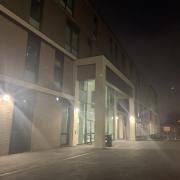
With GCSE’s on the horizon for thousands of schoolchildren across the country, it is unsurprising many of them are focusing on revision and exam dates. However, arguably more important is where to go for sixth form, and whether they want to stay at their current school, if it has a sixth form, or to change to a new environment.
As well as exam stress, many teenagers in their GCSE year feel additional stress about their life choices for the following years. With an increasingly competitive job market, the pressure of this choice seems to be ever more influential. Some decide to jump into the world of work straight away, however many still believe university is the path to follow. Despite the fact universities are beginning to offer more unconditional places, for most students A-Level results remain decisive in their university application.
As a result of this, academic achievement is of course a major factor in most teenagers’ decision. While average results tell part of the story, for some people the environment in which they wish to study in is just as important. For example, a large college, while having less time for individual teaching compared to a smaller sixth from, may be better suited to certain students learning styles. Similarly, the network and help a school is able to provide regarding work placements, internships and university applications is very important in preparing students for the future.
For others it is the extra-curricular activities which are important when they decide which sixth form to go to. Students who excel in a specific sport may decide to go somewhere with a good programme or links to a renowned external provider of this sport. Other students may simply love sports generally and decide to go to a college which focuses on all sports rather than academia. Outside of sports, music, drama and art are also examples of subjects which may have exceptional extra-curricular programmes at certain schools or colleges. Other students see extra-curricular activities as another way to gain an advantage when applying for universities, with Model United Nation or debating often held as examples of activities universities regard as advantageous.
Peer groups are another cause that persuades many students to change or remain at their current sixth form. While for some students the problem is that they have fallen into a bad crowd, others believe they can maintain their friendships while going to another school. The question of co-ed or single-sex education can also come into it, as some students of co-ed schools decide it may be a refreshing experience to go to a single-sex school, while single-sex schoolchildren may decide it would be boring to remain at their school for a further two years.
Furthermore, a common problem for students who will have already completed five years of education at the same school by the time they start sixth form may be that they feel pigeonholed and are still labelled by their actions in their first year when, in fact, they feel they have changed significantly since then. Equally, changing school is by no means a guarentee that a student will suddenly have more, closer friends or will be happier socially, despite what some think.
In conclusion the factors in deciding whether to change sixth form or not vary from person to person. For some the future, and their job prospects, are more important, while for other, the present, and how much they’ll enjoy their two years at sixth form, are the more pressing issue. It is impossible to say who is right and who is wrong, especially because everyone will have their own opinions on the matter.



























